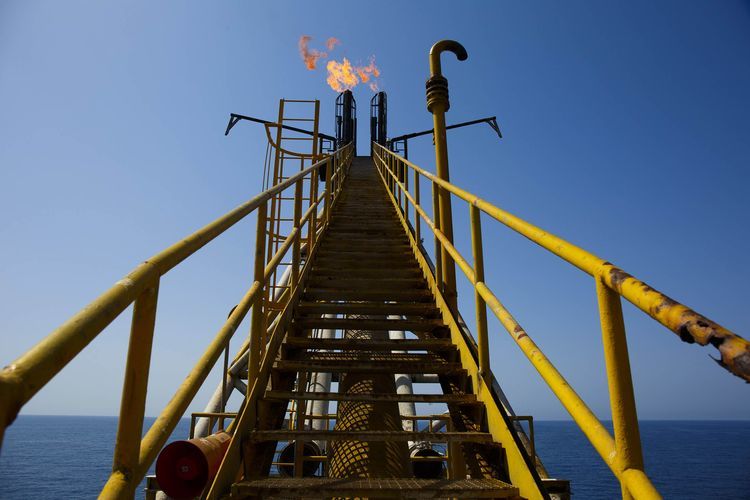
How reliant should the UK become on imported gas? It is a longstanding question that politicians prefer not to be asked because the answers would inevitably lead to further interrogation about the parlous state of our energy policy.
I go back a long way in this debate. As Energy Minister 15 years ago, I believed that the reliance on imported gas which was being envisaged at that time, overwhelmingly from Russia, was reckless and short-sighted; not so much an energy policy as a device to avoid hard decisions on nuclear new-build.
And so it goes on. In the meantime, the sources of imported gas have diversified due to the Ormen Lange imports from Norway to Easington, fracking in the United States and the LNG boom in Qatar and elsewhere. But while scenarios have changed, the underlying question remains the same – how reliant should we become on a single, mainly imported energy source?
The usefulness of gas in political argument is always to assert that it will fill whatever gap exists from other forms of power generation. Dilly-dally on nuclear, close down coal, overstate renewables – all of these can be explained away by reference to what gas will deliver.
And, sure enough, 40 per cent of UK electricity was generated last year from gas-fired power stations, not to mention the 80 per cent of UK homes that rely on gas asa primary source of fuel. The world is awash with gas and it is generally pretty cheap. So what’s the problem?
The possibility that things are not that joyously simple was highlighted recently with the announcement from Centrica that the long-serving Rough storage facility, off the Yorkshire coast, is to close permanently. In one fell swoop, two-thirds of the UK’s cushion against supply difficulties was removed from the equation.
This has happened at a time of growing uncertainty around our sources of gas. For the past decade, we have been net importers rather than exporters and the extent to which that changes the case for gas-dependence has not been sufficiently recognised at the political level.
Only about a third of the gas used in the UK now comes from domestic production and that figure will decline further. Most of the rest comes by pipeline from the EU (via Holland and Belgium) as well as Norway while the balance is imported by ship in the form of LNG.
None of these sources is threatened in the immediate future so, in political terms, emerging risks can still be pushed to one side, as they invariably are. The problem is that gas is itself highly political and, pretty much wherever one looks, global politics are casting a shadow upon certainty.
The most obvious example of this is Brexit. Nobody has a clue what deal will be done around the pipeline infrastructure which ends up supplying the UK via the Bacton terminal in Kent. Will we still be part of the EU deal – which depends largely on imports from Russia and Norway – and if so, at what price?
Then there is the huge Russian sub-plot. Despite the threat of US sanctions, Germany is pressing on with plans to do its own deal with the Putin regime to safeguard its imported supplies. Eastern members of the EU are up in arms since such a deal is perceived to undermine their own reliance on Russian gas.
The more powerful a position Russia is in, the more capable it becomes of using that power politically. So once the post-Brexit relationship with the EU has been worked out, the question will still remain of how content UK consumers are to be at the end of a supply chain that feeds back all the way to Siberia.
What about Qatar which, just a few years ago, was being feted as the new guarantor for security of supply even if LNG was more expensive than gas carried by pipeline? Qatar is sour biggest supplier of LNG imports has declined and the immediate reaction to the Rough announcement was a prediction of that contribution increasing.
How wise is this? Back in 2012, the former UK Energy Secretary, Lord Howell – still then an adviser to the government – warned that Qatar was “rather near to a lot of jihadis” and “if anything went wrong, there would be chaos – we would be up s— creek”.
The current Saudi-led blockade of Qatar certainly carries the prospect of chaos, particularly since it is directed against Qatari-Iranian co-operation, on which the Qatari industry isa dependent. Once the sabres have been rattled, things may settle down – but that is scarcely a safe assumption on which to base future planning
With less storage to fall back on, the UK will become more dependent on the market and even if every current source of imported gas continues to supply us, either directly or indirectly, then price volatility due to these global uncertainties is bound to kick in. At present, gas is cheap. Five years from now, it might be very expensive.
It all feeds back to the fundamental point that we should not become over-dependent on any single energy source, particularly where the conditions of trade and supply are largely outside our control.
At risk of sounding boring and repetitive, the need for a balanced energy policy is as great as ever – and that includes firm political actions one way or another on difficult issues like nuclear and fracking.
Recommended for you
